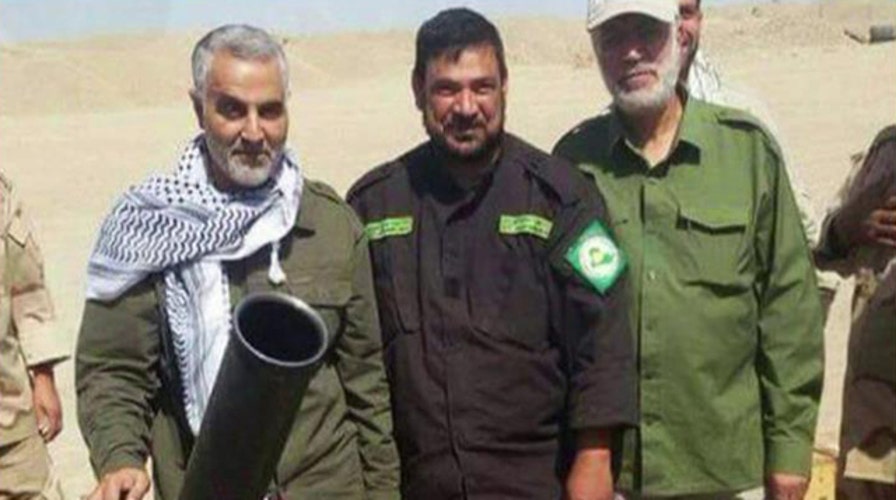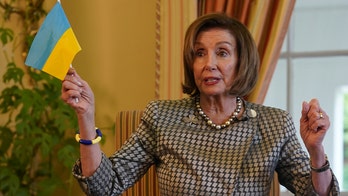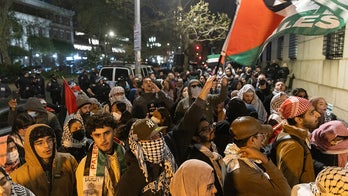Sources: Iranian general met Putin, defied travel ban rule
Jennifer Griffin reports from Washington
Iranian officials confirmed Friday that General Qassem Soleimani, the heavily sanctioned Revolutionary Guard Quds Force commander, traveled to Russia last month and was conducting weapons deals, including discussion of the S-300 missile system, according to Reuters.
The U.S. ambassador to the United Nations, Samantha Power, said Friday the U.S. is very concerned about the development.
“Qassem Soleimani is subject to a UN travel ban and this travel ban requires all states to prohibit Qassem Soleimani from traveling to their nation and the only exception to that is if the Iran sanctions committee grants an exemption,” she said at UN headquarters in New York.
The White House did not specifically blame the Russians for hosting the Iranian general.
“I can't confirm these specific reports but it is an indication of our ongoing concerns with Iran and their behavior,” White House press secretary Josh Earnest told reporters Friday at the daily press briefing.
Mike Rogers, former chairman of the United States House Permanent Select Committee on Intelligence, weighed in late Friday afternoon.
"We should not underestimate what this means to our national security,” he said. “A leading general in Iran just told the world that the United States of America is irrelevant and Russia welcomed him with open arms. Not only do Russia and Iran not fear us, they do not respect us. And that, is dangerous."
According to two separate Western intelligence sources, Soleimani arrived in Moscow on Iran Air flight 5130 from Tehran on July 24, ten days after the nuclear agreement between Iran and six world powers was announced that included a provision to lift the arms embargo on Iran.
Five days later, Secretary of State John Kerry testified about the Iran nuclear deal before the Senate Armed Services Committee, assuring Congress pressure would remain on Iran's shadowy general.
“Under the United States' initiative, Qassem Soleimani will never be relieved of any sanctions," Kerry told the Senate Armed Services Committee.
In Moscow, Soleimani met with President Vladimir Putin and Russia's defense minister.
In June, Russia announced it would send S-300 anti-aircraft missiles to Iran by next year, according to a top Kremlin official.
Soleimani was photographed in Iraq recently on the front lines with Iranian-backed Shia militias battling ISIS, also in defiance of the travel ban.
Soleimani is blamed for the deaths of 500 Americans in Iraq. He also is suspected of orchestrating the failed assassination attempt on the Saudi Arabian ambassador to the United States at a popular Georgetown restaurant in Washington.
Soleimani's Moscow visit elicited a reference during the Republican debate Thursday night.
“He's directly responsible for the murder of over 500 American servicemen in Iraq and part of this Iranian deal was lifting international sanctions on Gen. Soleimani -- the day Gen. Soleimani flew back from Moscow to Iran was the day we believe Russia used cyber warfare against the joint chiefs,” said Sen. Ted Cruz, R-Texas.
Iran's acknowledgement of Soleimani's visit to Moscow indicates a possible split in Iran's leadership: those loyal to the military are unconcerned about blazingly defying sanctions even before the nuclear deal is sealed.





